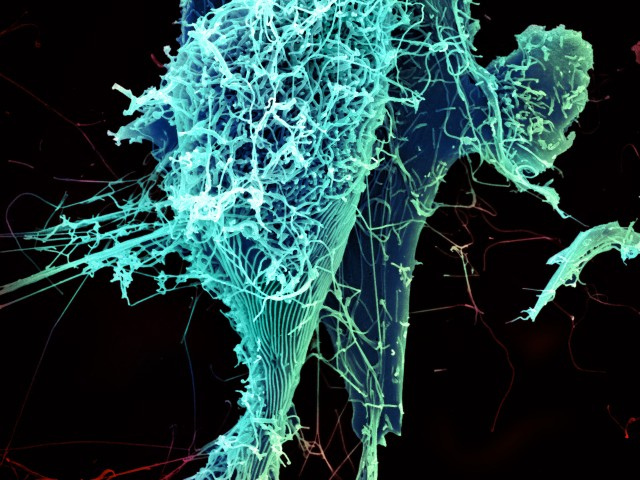In all fields of research which operate at both the frontier of understanding and the interface with politics, there are vocal skeptics. Human-induced global climate change is surely the most current of these. While U.S. public opinion about the ability of humans on climate has shifted in support of the overwhelming scientific evidence, there are still those who hold that other causes are to blame.
One such skeptical claim is that the solar cycle, which varies over many decades, has more influence on the climate than CO2. Skeptics blame the sun for the heating trends witnessed in the last century, including both the well-known 11-year variation and longer variations on which that rides. Well, as with all big claims (either for or against global warming), they must stand up to the scrutiny of the scientific method. Ideas are all fine and well, but without evidence they are loud talk in an empty room.
The BBC is reporting that two scientists are reporting in the Royal Society’s Journal Proceedings A that solar activity evidence actually points to the contrary conclusion: solar activity should be cooling the earth right now [1]. Their work shows that solar activity levels – seen through cosmic rays and solar output – have decreased even while the global temperature has continued to rise. While there can certainly be time-lag effects on such things, the fact that the solar activity dropped after 1980 while the temperature has only gotten rapidly worse doesn’t correspond to a correlation with a time delay.
The researchers – Drs Mike Lockwood (RAL) and Claus Froehlich (World Radiation Center, CH) – were inspired by a TV program that pointed to the cosmic ray hypothesis as a strong piece of evidence against a human element in global warming. However, the program stopped showing data after 1980. Said Lockwood, “All the graphs they showed stopped in about 1980, and I knew why, because things diverged after that . . . You can’t just ignore bits of data that you don’t like.”
Of course, this work will undergo scrutiny and should, hopefully, inspire other tests to try to refute it. However, if it holds up it’s a pretty strong nail in the coffin of this line of skepticism. Skepticism is good, but only in the face of a lack of evidence. A good scientists, confronted with the facts, has to change their hypothesis to fit the data. The test of the skeptics in this case is whether they work to refine their hypothesis to avoid the data, or whether they turn around and ask new questions about other effects, setting this one aside.




